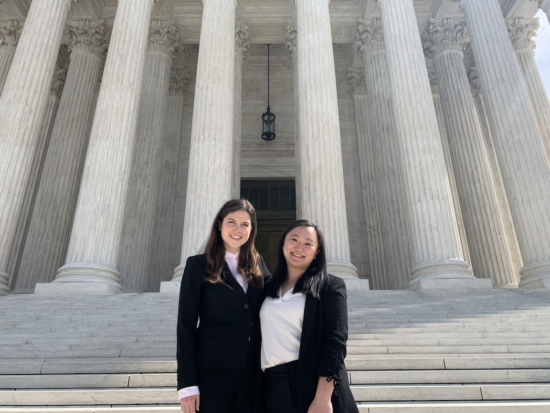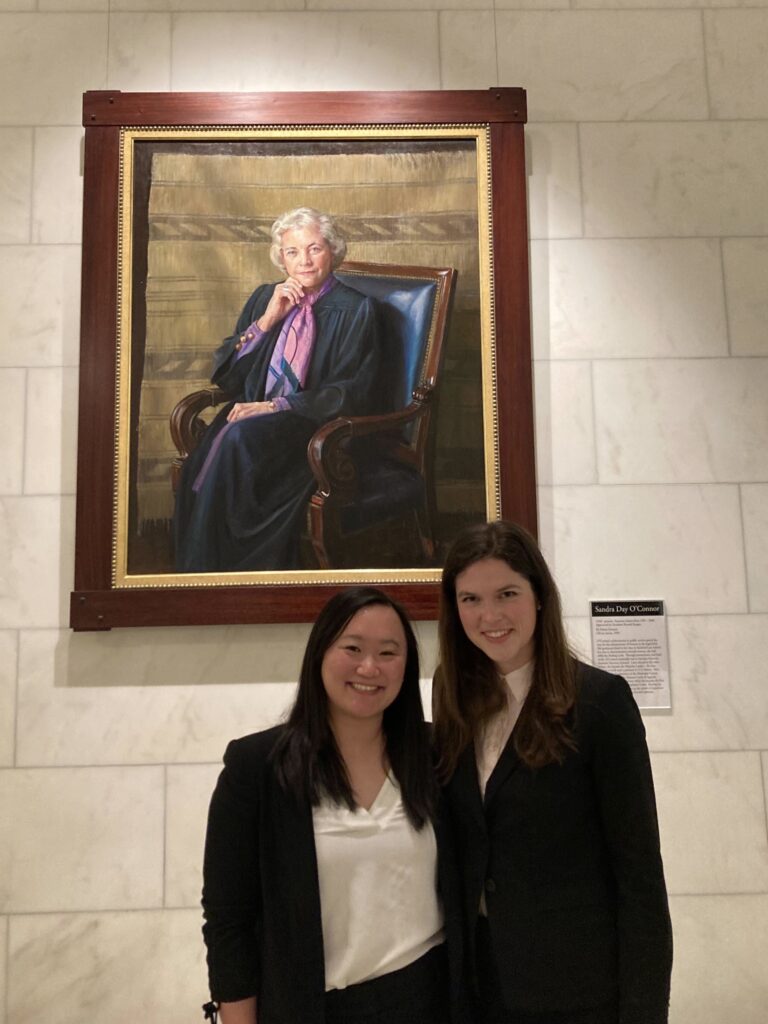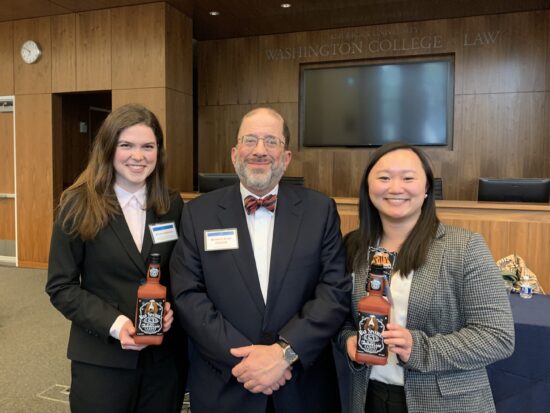We (winter quarter Juelsgaard Intellectual Property and Innovation Clinic students Julia Laurence (JD ’24) and Victoria Fang (JD ’24)) visited Washington, D.C. last month with Clinic director Phil Malone to attend the oral argument in Jack Daniel’s Properties, Inc. v. VIP Products LLC, a U.S. Supreme Court case in which we wrote and submitted an amicus brief on behalf of 30 trademark law professors. Central to the dispute is which legal test courts should apply to trademark infringement lawsuits when evaluating consumer confusion over products selling speech—in this case, a parody dog toy called “Bad Spaniels.”
We got in line for the oral argument in the dark at about 4:30 am. After standing about a chilly four-and-a-half hours, we were ushered into the Supreme Court building and eventually into the ornate Courtroom itself. The arguments were lively and punctuated with occasional laughter during the arguments from counsel for Jack Daniel’s, the U.S. Solicitor General, and VIP Products. Instead of the typical one-hour argument split between the two parties in a case, the Court had allowed the SG to participate and enlarged the time allotted for oral argument, which ultimately lasted just over 80 minutes. During the oral argument, seven of the nine justices asked questions.

Consistent with the brief we submitted, some justices appeared concerned about preserving an early threshold test for free speech. For example, Justice Kagan acknowledged that expensive consumer confusion surveys can lead to expensive trademark infringement litigation, and Justice Sotomayor suggested that there may be some uses that should be resolvable on a motion to dismiss or summary judgment to avoid expensive litigation, which the Clinic’s brief argues chills speech. Justice Alito also expressed concern about the First Amendment implications of Jack Daniels’ position and noted that “some of the hypotheticals and actual cases that are highlighted in the briefing in this case do seem to me to present serious First Amendment issues.”

After oral argument, we had the opportunity to hear from and discuss the case with counsel for VIP Products and other amici in the case at a lively panel discussion at the American University Washington College of Law. Participants discussed the strategies of their own briefs and provided critiques of the oral argument, takeaways from the justices’ line of questioning, and predictions on the outcome of the case. The panel was followed by a reception where we met and discussed the argument with other amici and talked with several of the trademark law professors who were amici on the our brief, including panel host Professor Christine Farley and Professor Michael Carroll.
